The market for flagship Android phones is as competitive as ever, especially with Samsung dropping prices on many of its phones (or selling them at lower MSRPs) over the past year. The Galaxy S20 Fan Edition was one of the best value smartphones of 2020, and each phone in the Galaxy S21 series is $200 cheaper than their S20 counterparts. Meanwhile, OnePlus has continued to slightly raise prices on its phones every year, but the devices still remain price-competitive with flagships from other companies. The OnePlus 9 and OnePlus 9 Pro are the company’s main phones for this year, and the latter device has a few notable upgrades to its camera system.
The OnePlus 9 and Galaxy S21 are some of the best flagship Android phones available today, but which one is better? In this guide, we’ll give you all the facts and comparisons you need to make an informed purchase.
Galaxy S21 & OnePlus 9 Specifications
| Specification | OnePlus 9 | Galaxy S21 |
|---|---|---|
| Build |
|
|
| Dimensions & Weight |
|
|
| Display |
|
|
| SoC |
|
|
| RAM & Storage |
|
|
| Battery & Charging |
|
|
| Security | In-display fingerprint scanner | In-display fingerprint scanner |
| Rear Camera(s) |
|
|
| Front Camera | 16MP Sony IMX471, f/2.4, FF, EIS | 10MP, f/2.2, EIS |
| Ports | USB 3.1 Gen1 Type-C | USB 3.1 Gen1 Type-C |
| Audio |
|
|
| Connectivity |
|
|
| Software | OxygenOS (Android 11) | One UI 3.5 (Android 11) |
| Other Features |
|
|
Design and hardware: Nearly identical
The Galaxy S21 is the smaller of the two phones, with a screen size of 6.2 inches, though the OnePlus 9 isn’t much larger at 6.55 inches. Both devices have high-quality AMOLED screens, a maximum refresh rate of 120Hz (though you can go down to 60Hz for longer battery life), and HDR10+ support.
The OnePlus 9 and Galaxy S21 have power buttons and volume keys, though the OnePlus 9 has an extra switch. The alert slider on the right side (above the volume buttons) can change between silent, vibrate, and ring modes. Most other phones, including the Galaxy S21, only allow you to switch modes through software.

Both phones have a speaker grill above the screen and another speaker on the bottom. Next to that bottom speaker is the USB Type-C port, used for charging and data transfer. Unfortunately, both the Galaxy S21 and OnePlus 9 are missing a 3.5mm headphone jack, and neither company includes an adapter in the box with the phones. You’ll need to purchase an adapter (like this one) to plug in most types of wired headphones.
The rear casing is one notable difference between the two phones — while the OnePlus 9 has a Gorilla Glass back, the Galaxy S21’s rear is plastic. This helps the OnePlus 9 look a bit more ‘premium,’ but I’m personally a fan of the matte plastic used on the Galaxy S21. It doesn’t feel cheap, and it doesn’t smudge up with fingerprints like glass.

As for internal hardware, the entry-level versions of both phones have 8GB of RAM and 128GB of internal storage. The pricier version of the Galaxy S21 has the same amount of RAM and double the storage, while the high-end OnePlus 9 has 12GB RAM and 256GB storage. No matter where you buy it, the OnePlus 9 is powered by a Snapdragon 888 chipset. However, the Galaxy S21’s chipset varies by location — it has a Snapdragon 888 in the United States and a few other regions and Samsung’s own Exynos 2100 chipset in other parts of the world.
Finally, the Galaxy S21 and OnePlus 9 both have all-day battery life. The former has a 4,000mAh battery with up to 25W fast charging, while the latter has a slightly larger 4,500mAh battery with faster 65W charging. Both phones can charge wirelessly at 15W using standard Qi pads, but only the Galaxy S21 can charge other devices without cables.
Cameras: It’s a toss-up
The Galaxy S21 has three rear cameras: a 12MP main, a 12MP wide-angle lens, and a 64MP telephoto lens. Meanwhile, the OnePlus has a 48MP main lens and 50MP ultra-wide, as well as an extra 2MP monochrome sensor that aids the other lenses. Both phones can take excellent photos, though I personally prefer the OnePlus 9’s camera. The Galaxy S21 captures plenty of detail, with balanced contrast, but often pumps up the brightness and color saturation to unnatural levels. This is easily visible in the below comparison photo — the leaves on the trees are much more green than they appear in real life. I definitely prefer the OnePlus 9’s more realistic processing here.

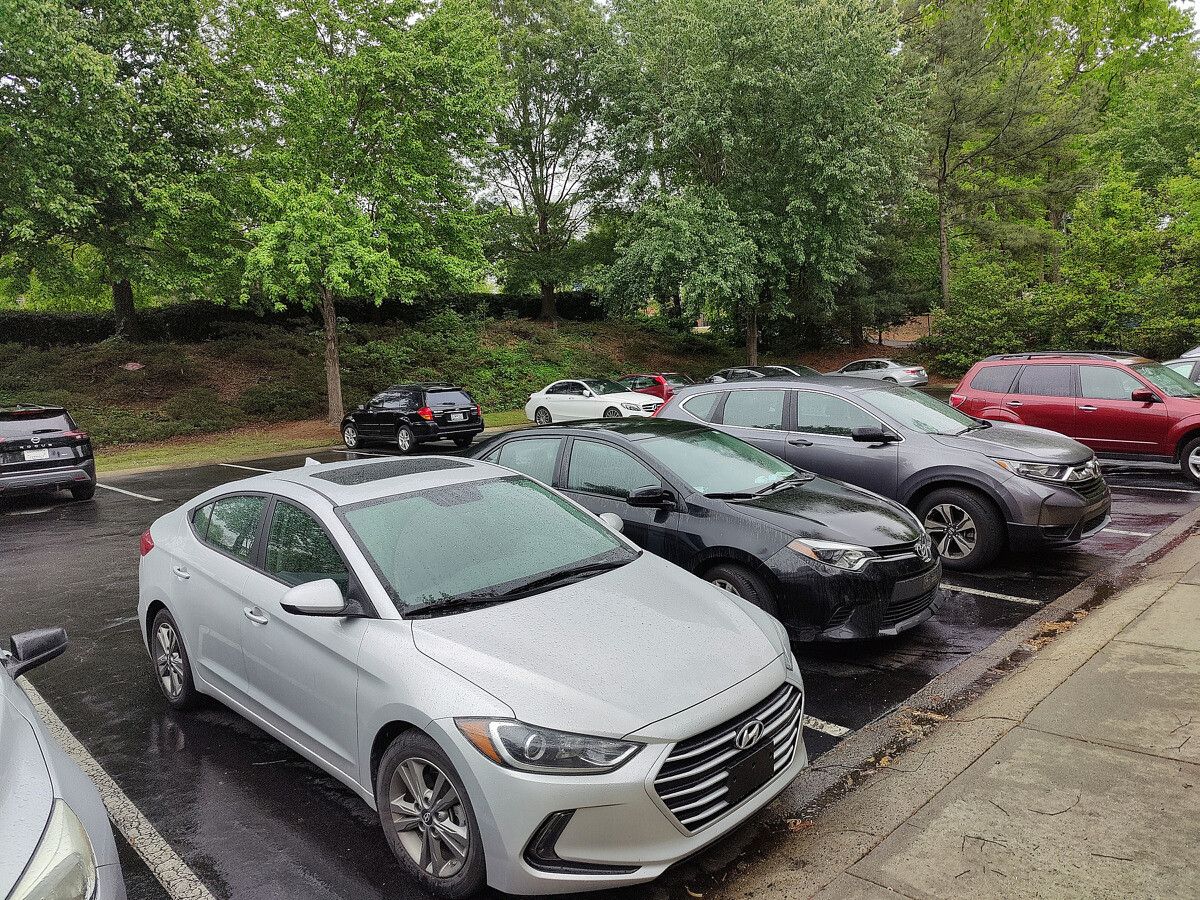
However, the OnePlus 9 isn’t without its own flaws. For years, photos captured with OnePlus phones have looked like a watercolor painting when you zoom in far enough, and this has carried over to the OP9. The effect isn’t a dealbreaker by any means, but it does mean that cropped photos will look a bit better on the Galaxy S21.
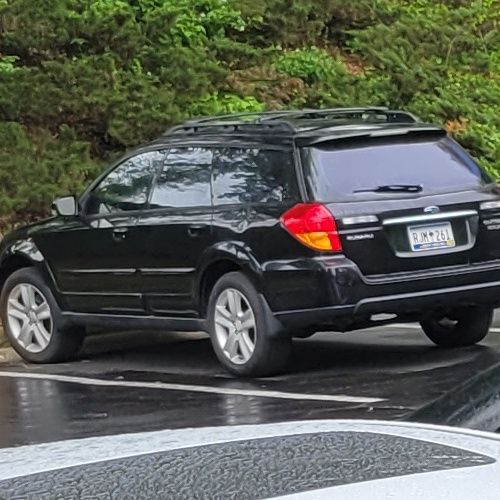
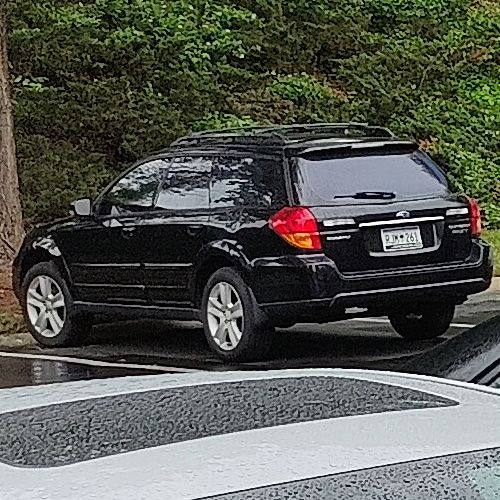
Even when you zoom while capturing photos, instead of cropping later, the Galaxy S21 comes out ahead. The S21 has a dedicated telephoto lens for zoom shots, so there’s no contest between it and the OnePlus 9. The below photo was taken at 10x zoom with both phones — the S21’s photo looks relatively normal, while the OP9’s image has more jagged edges and less fine detail.
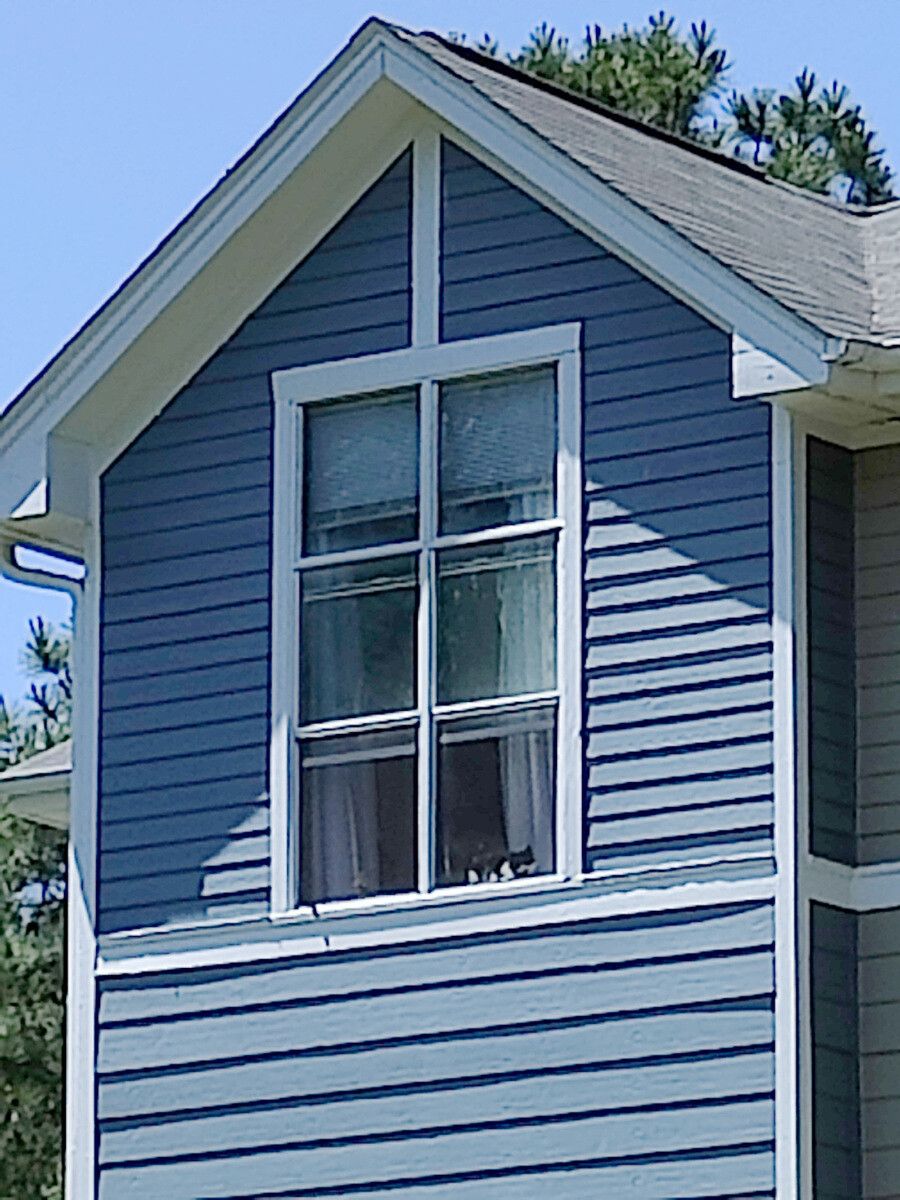

In all the other photos we took with both phones, the Galaxy S21 had a tendency to brighten up photos, while the OnePlus 9 was generally closer to real life in color balance. Both phones perform similarly in low-light conditions, though.
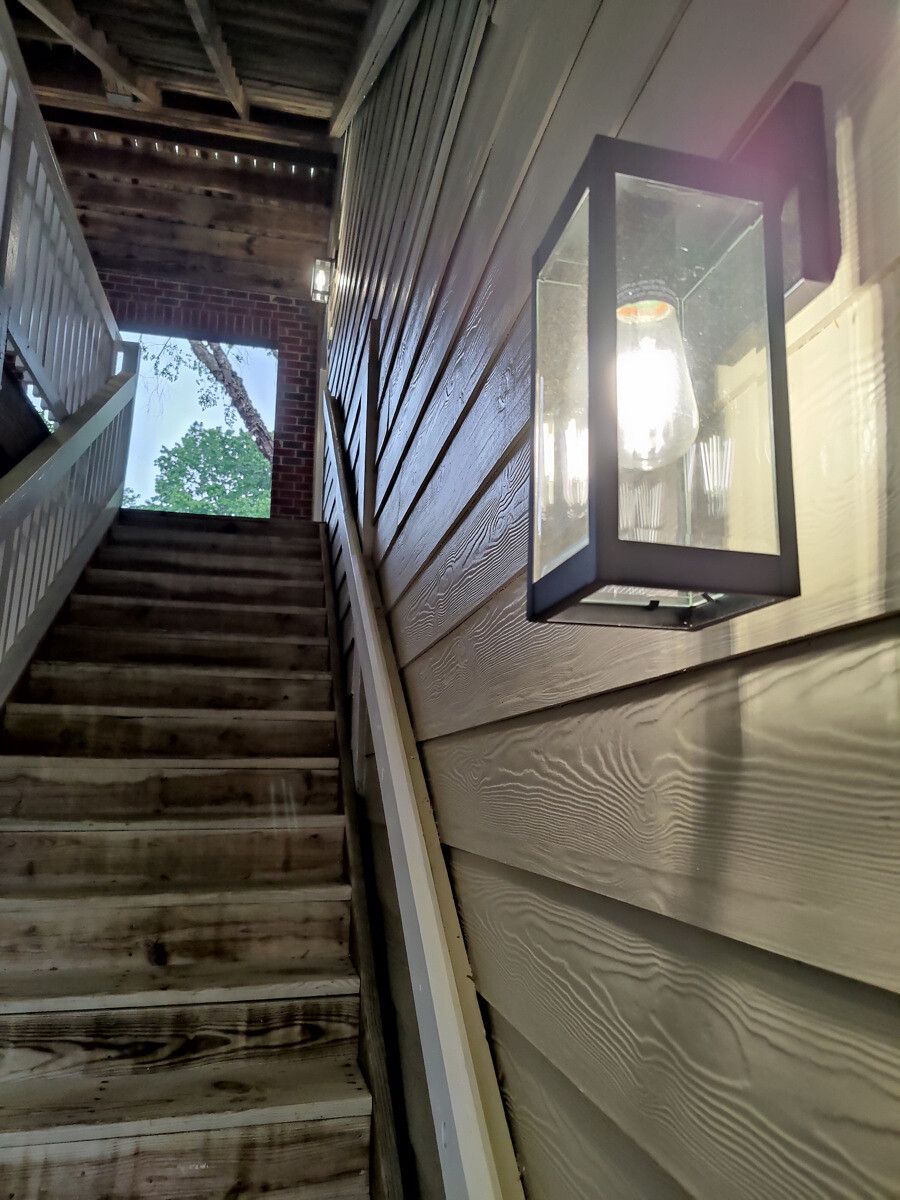

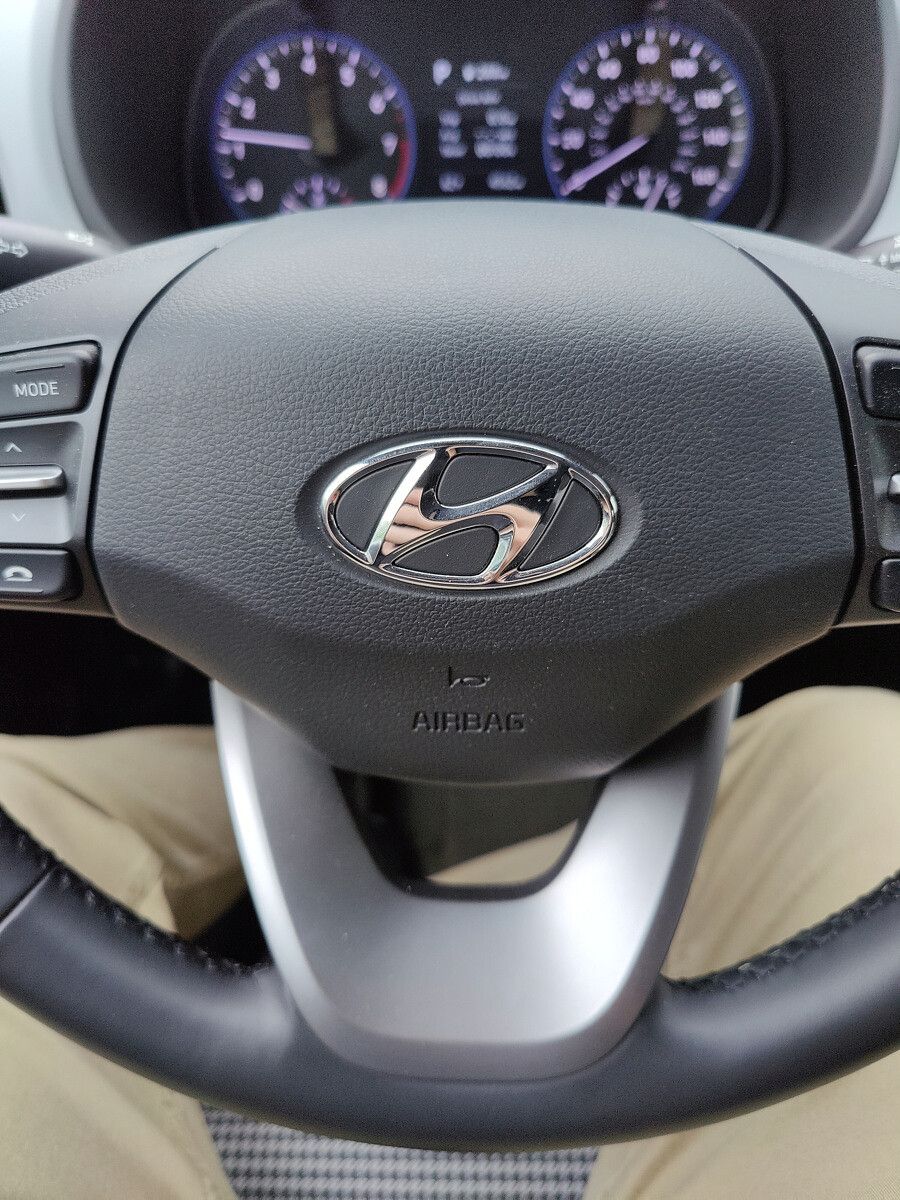
OnePlus 9 photo samples
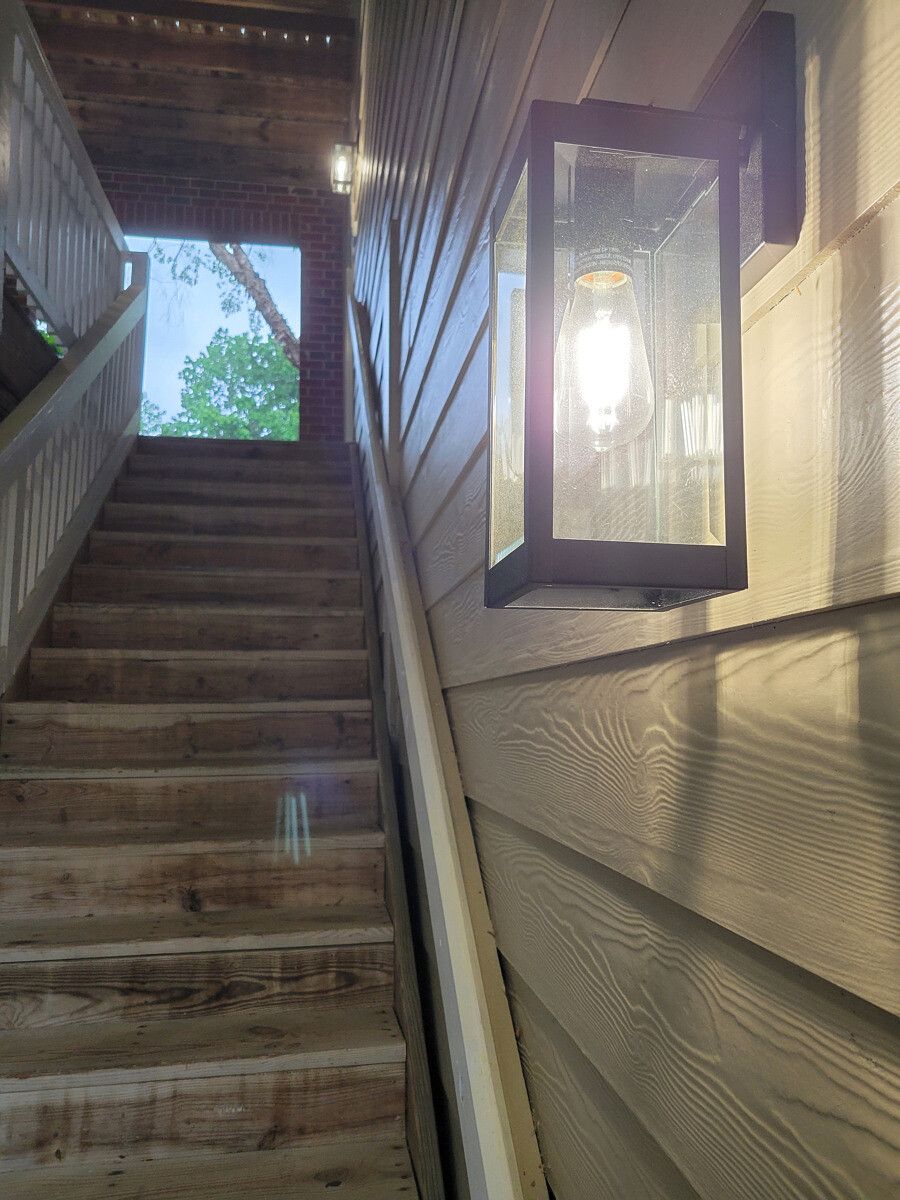

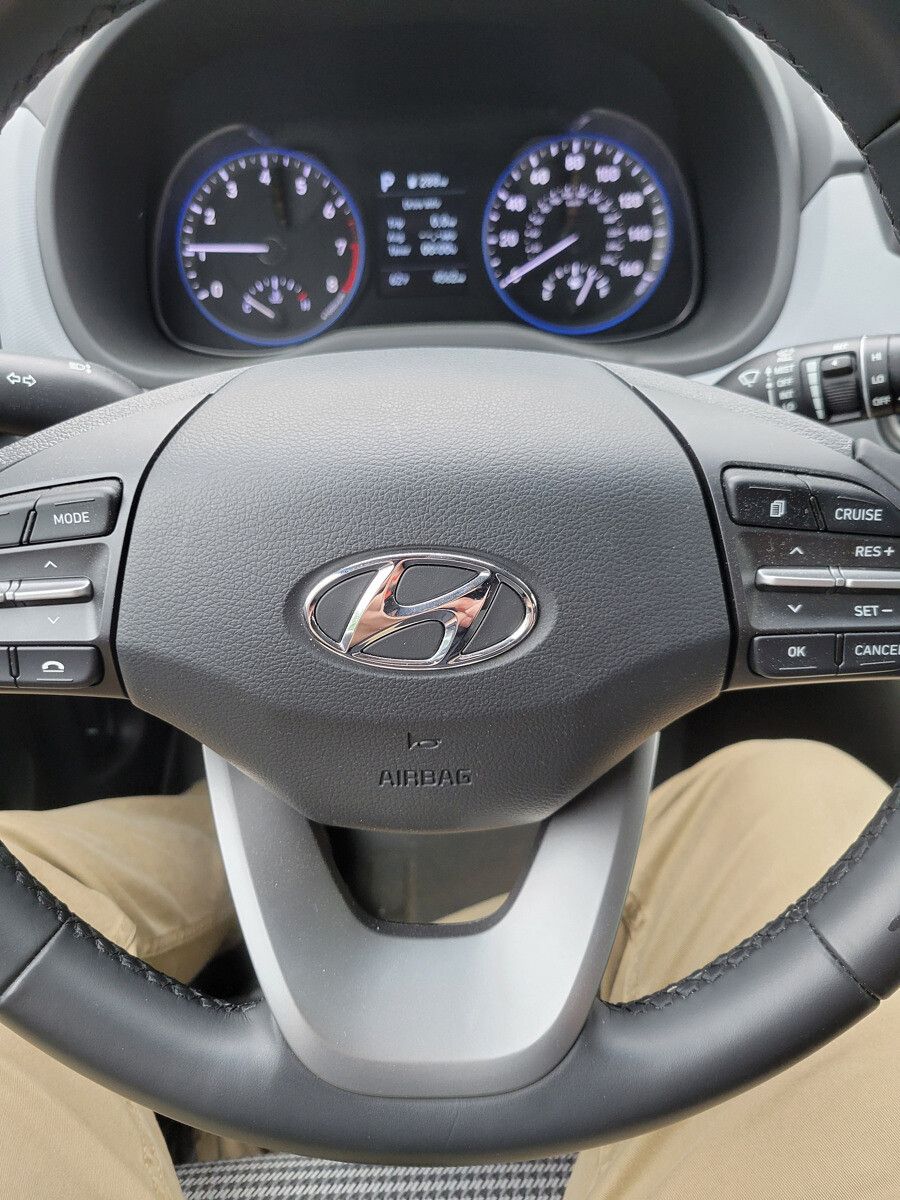
Galaxy S21 photo samples
In summary, either phone will have no problem capturing photos and video, and the winner depends on what you’re looking for. If you value true-to-life colors, the OnePlus 9 is the winner. If you’re not a fan of the watercolor effect and/or you take photos of farther-away objects more often, the Galaxy S21 is the best choice.
Final thoughts: Galaxy S21 is the winner
Both the Galaxy S21 and OnePlus 9 are excellent devices, and they’re similar enough in software and performance that one isn’t obviously better than the other. However, there are subtle differences between the two that make the OnePlus 9 weaker in comparison. The Galaxy S21 has a dedicated telephoto lens, while the OnePlus 9 does not. Samsung’s phone also has IP68 water/dust protection, while only the T-Mobile version of the OnePlus 9 is IP68-certified. The OnePlus 9 still has a larger screen and faster charging, though.

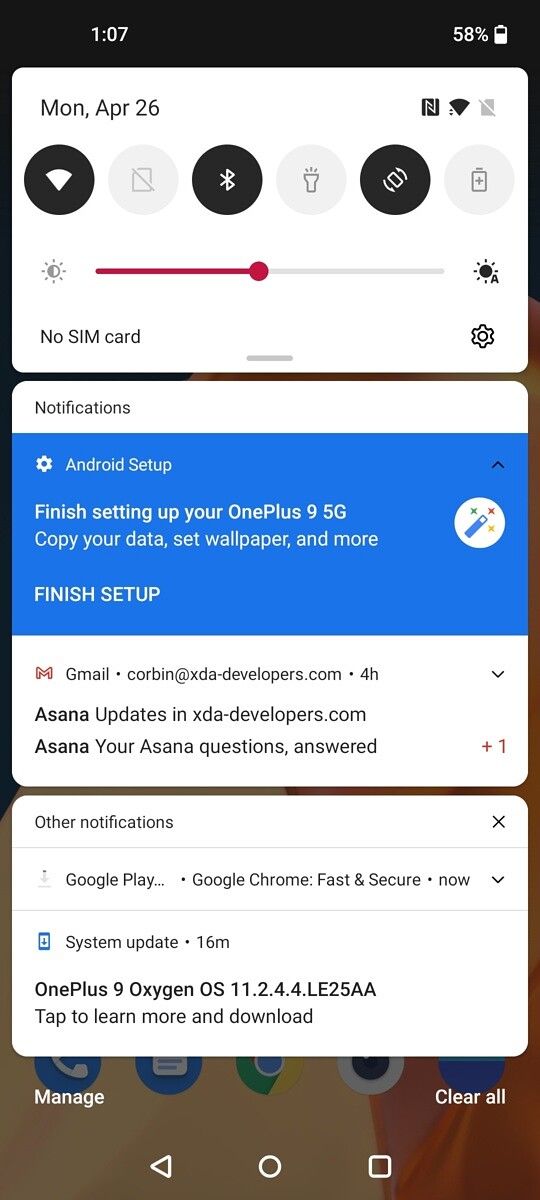
Software is also a factor. Even though both devices shipped with Android 11 and should receive years of security updates, Samsung guarantees four years while OnePlus typically provides security updates for around three years (the OnePlus 6 from 2018 is still being updated). However, the OnePlus 9 series has a myriad of software bugs, including the same issues with missed push notifications that have affected other OnePlus phones in the past. Samsung isn’t perfect either, as the company loves showing you ads on its phones, but I’ve yet to encounter any serious bugs on my Galaxy S21 after a few months of use.
OnePlus 9 Forums ||| Samsung Galaxy S21 Forums
The entry-level OnePlus 9 (with 8GB RAM and 128GB storage) typically retails for $729, while the base Galaxy S21 (with the same RAM/storage) has an MSRP of $800. However, the Galaxy S21 has already dropped to $700 a few times. The Galaxy S21 is likely already a better buy at $80 more than the OnePlus 9, but when it’s even cheaper, there’s not much of a contest.
- The Galaxy S21 is Samsung's entry-level flagship for 2021. It normally costs $800, but it has frequently gone on sale for $700, making it slightly cheaper than the OnePlus 9.
- The OnePlus 9 is still an overall excellent smartphone, with a large display, super-quick charging, and enough power to handle anything you throw at it.
The post OnePlus 9 vs. Galaxy S21: Which sub-$800 phone is for you? appeared first on xda-developers.
from xda-developers https://ift.tt/2R0r7PF
via IFTTT
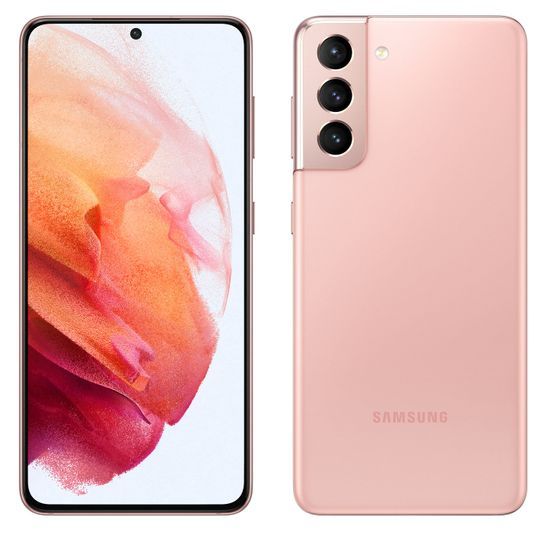

No comments:
Post a Comment